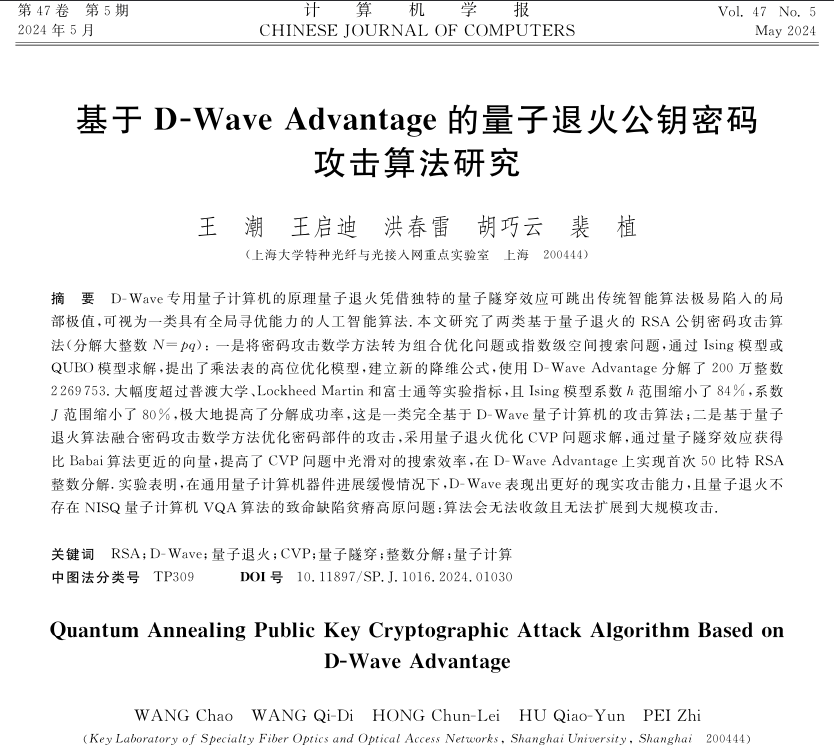Our Daily Breach 2024/10/16
Chinese researchers weaken RSA encryption with quantum computing.

Today's breach isn't a corporate or public sector issue, it's a collective threat to privacy as we know it. In May 2024, researchers from the Chinese Journal of Computers published a paper titled Quantum Annealing Public Key Cryptographic Attack Based on D-Wave Advantage (preserved via the Wayback Machine). Let's break down the title bit by bit:
Quantum Annealing refers to a quantum computing technique used to optimize complex problems, such as the traveling salesman problem. In traditional algorithms, the code loops through each path one by one to find the most efficient solution. Quantum computers, on the other hand, evaluate all possible paths simultaneously and identify the optimal route faster than classical approaches.
Public Key Cryptographic Attack refers to an attack on modern encryption systems, which generally fall into two categories:
- Symmetric Key Encryption, known for being fast but less secure.
- Asymmetric Encryption, where the sender and receiver each have their own public and private keys. While this method is more secure, it tends to be slower.
The paper focuses on attacking RSA, an NSA-recommended encryption method that's widely used across the Internet. Unless you're Casio, you've probably sent an email or used a VPN. Chances are, that content was encrypted with RSA.
Based on D-Wave Advantage refers to the quantum computing platform provided by D-Wave, a Canadian company. The researchers used D-Wave’s quantum annealing technology to launch their attacks on the RSA algorithm.
In essence, the researchers could have titled their paper "Using Quantum Computing to Weaken Internet Encryption." More technically, the paper highlights a critical point: many cryptographic systems, such as RSA, rely on the difficulty of specific mathematical problems (like integer factorization). Quantum machines, however, can efficiently solve these problems by exploring previously intractable search spaces, directly threatening current cryptographic protocols. While in this paper the researchers did a decomposition of a short 50-bit key, this approach is more efficient than the previous Quantum-based attacks.
While I'm not saying this is the dawn of Q-Day, the significance of this paper should not be dismissed as lightly as some Reddit commenters have. Personally, I'll be exploring more quantum-safe algorithms for long-term data protection.





